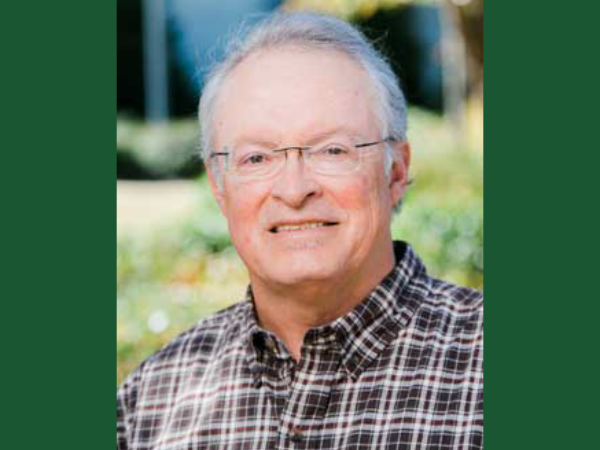Across more than two decades of innovation, mentorship, and advocacy, Professor Clarence “Clancy” Blair, PhD, established himself as an internationally respected leader in the fields of early childhood development, developmental neuroscience, and education. Blair and his collaborator and spouse, Cybele Raver, PhD, generously created a namesake scholarship at his alma mater, the University of Alabama at Birmingham (UAB) College of Arts and Sciences, after a diagnosis of early onset dementia spurred his retirement.
An extraordinary outpouring of support followed Blair’s untimely death in December 2024. Donations from hundreds of individual donors more than quadrupled the scholarship’s corpus and the amount of support it can provide to Developmental Psychology PhD students each year.
This June, the University of Alabama System Board of Trustees officially elevated the endowment to the Clancy Blair, PhD Endowed Eminent Scholarship in Developmental Psychology—an enduring tribute not only to one of UAB’s most accomplished and celebrated alumni, but also to the power of compassion to be a force for positive change.
Rethinking Early Childhood Development
A Birmingham native, Blair earned his bachelor’s in history from Canada’s prestigious McGill University following his attendance at Indian Springs School. Blair returned to his hometown to pursue his master’s and doctorate in developmental psychology, as well as his master’s in public health, from UAB.
“Clancy was one of the first graduates of our Developmental Psychology Doctoral Program,” Dr. Carl McFarland, longtime professor and chair emeritus of UAB Psychology, wrote in Blair’s memory. “I was department chair during his time as a student and I watched his outstanding career grow. I was still chair when he returned to receive our Outstanding Alumnus Award in 2008. From his modest stature as a graduate student to his prominence as a superstar, his demeanor, warmth, and kindness never changed.”
Before completing his PhD in 1996, Blair embarked on the Family Life Project, a 28-year-long longitudinal study which focused on the impact of environment—not only parenting styles, but also factors like financial instability, ambient noise, and access to childcare—on cognitive development and emotional self-regulation in early childhood.
Through careful observation of parent-child interactions and measuring cortisol levels in saliva samples (among other tests), Blair and his colleagues established a link between poverty-related stressors, children’s home environments, and elevated levels of stress. They found that higher stress reduces a child’s ability to adapt to changing situations, maintain focus, and keep their emotions under control, increasing their risk of academic difficulty in the early years of schooling. Importantly, Blair and his colleagues also found that positive family environments and high-quality early educational experiences in preschool and kindergarten could serve as key protective factors, supporting young children’s academic and emotional resilience.
“It is no mystery that stress thrives in difficult situations, but research is now showing that a disadvantaged upbringing may set back children in profound, lasting ways,” Blair wrote for Scientific American in 2016. “In fact, stress may be one important mechanism through which poverty adversely affects children's ability to perform well in school. [My team] observed that executive function matters for achievement: this suite of mental skills was the main determinant of math proficiency, far outweighing other aspects of intelligence.”
Blair emphasized that because these outcomes are socially determined, they can also be changed. “A focus on reducing stress through changes in home or in school could improve the well-being of large numbers of schoolchildren and set them up for greater success throughout life,” Blair wrote.
“I Am So Thankful to have Worked with Him”
Memorials to Blair describe his research—including more than 200 peer-reviewed publications—as “brilliant,” “foundational,” and “fundamental to healthy human development.” Together with colleagues like Raver, who cofounded New York University’s Neuroscience and Education Lab with Blair, as well as neuroendocrinologist Doug Granger, PhD, Blair helped redefine scientific understanding of the relationship between cognitive and emotional development.

“Dr. Blair's groundbreaking work not only expanded the research questions and directions pursued by developmental psychologists, but also changed the day-to-day practices utilized in childcare centers and primary schools, as well as the conversations that pediatricians and social workers have with parents,” said Kecia Thomas, PhD, Dean of the UAB College of Arts and Sciences. “His research on environmental threats to cognitive development continues to benefit children today and will into the future. His contributions to society are immense.”
The compassion that guided Blair’s research extended far beyond the lab. Former students and colleagues uniformly remember him as a visionary, energetic, and fundamentally kind person whose approach to collaboration empowered those around him.
Describing Blair as “one of the nicest humans in academia,” Columbia University associate professor Natalie Brito wrote, “I am so grateful to have been his colleague—Clancy was instrumental to my success at NYU.”
“I had the great privilege of having Clancy as my grad mentor and his brilliance, generosity, and sense of fun will never stop inspiring me,” added Andy Ribner, now a faculty member at Chatham University.
“I will remember Clancy as a generous, enthusiastic, and inspiring mentor who has forever shaped the way I think,” wrote Sarah C. Vogel, PhD, incoming assistant professor at the University of Massachusetts Boston, in another characteristic tribute. “I am so thankful to have worked with him.”
To recognize his career-long dedication to encouraging his proteges and fostering their careers, Blair was honored with the International Society for Developmental Psychology’s Rovee-Collier Mentor Award in 2022.
A Lifelong Advocate

Blair joined Raver in Nashville, where she continues to serve as Provost and Vice Chancellor for Academic Affairs at Vanderbilt University, in 2021. Within months, Blair received a tragic, life-altering diagnosis: frontotemporal dementia, coupled with primary progressive aphasia, a rare condition that gradually diminishes a person’s ability to communicate.
Prior to his diagnosis, Blair had been a tireless advocate for positive change, urging peers and early career scientists alike to take an empirically rigorous, evidence-based approach to science, social policy, and early intervention. Even with his capacity to use language eroding, he devoted the remaining years of his life to making a difference in his community. He frequently spoke on behalf of Dementia Action Alliance, shared his experiences through ceramics and songs on his acoustic guitar, and volunteered his time with Nashville homeless shelter Room In The Inn as long as he was able.
“We’re all in this together,” Blair said in a video for Dementia Action Alliance. It was more than a motto: it was a belief that Clancy Blair modeled throughout his life and career.
Thanks to the Blair Endowed Eminent Scholarship, that ethos is already changing lives for the better at Blair’s alma mater. And just as he did in life, this beloved mentor will continue to inspire young scientists to use their hearts as well as their minds to make a meaningful difference in our world.




